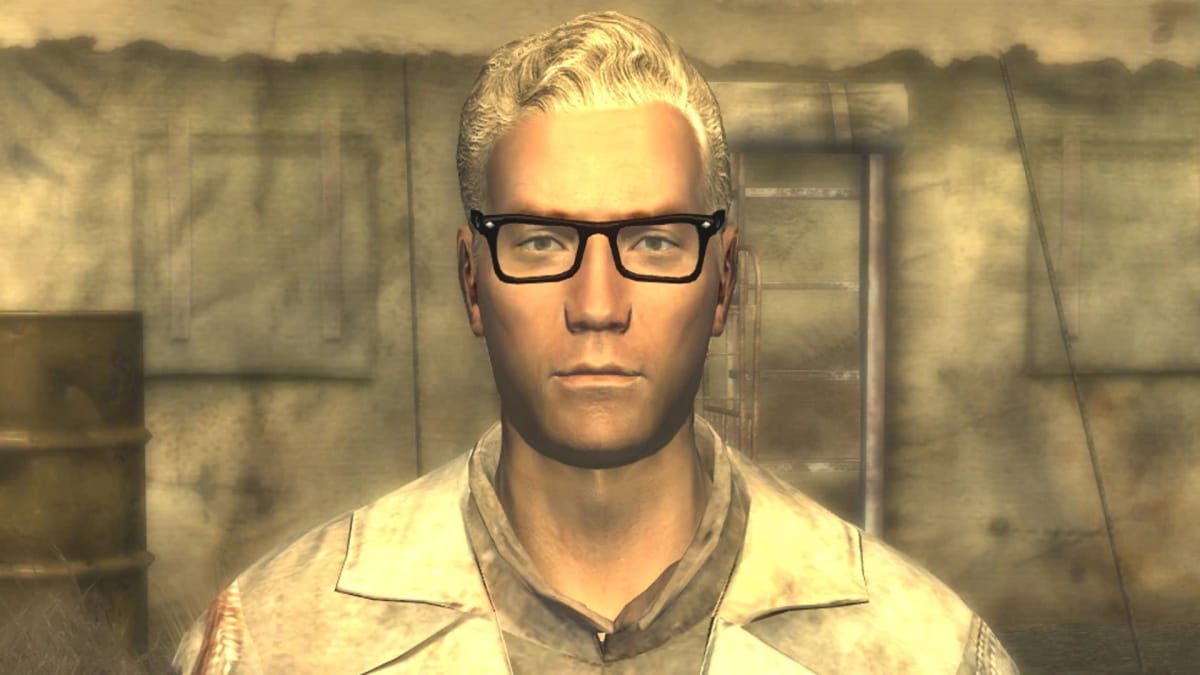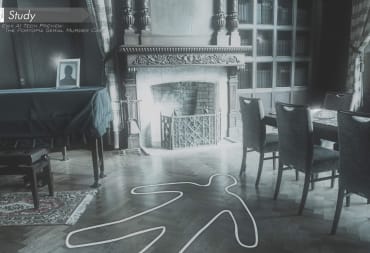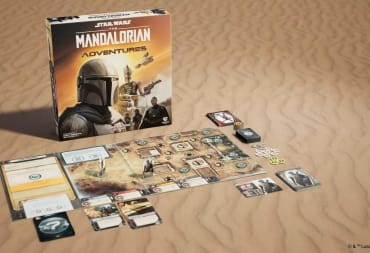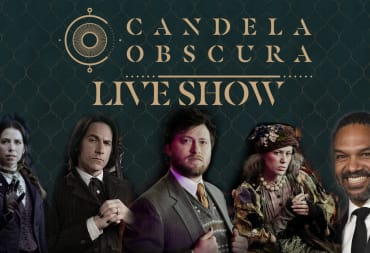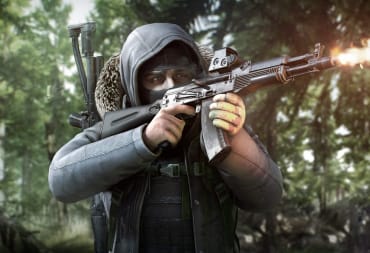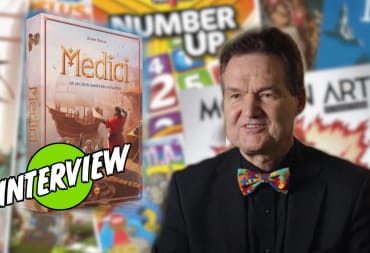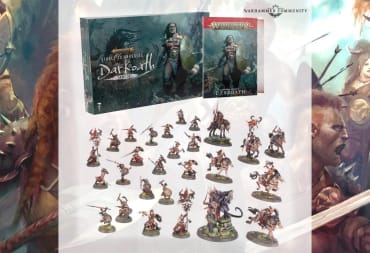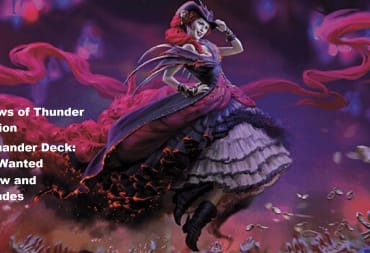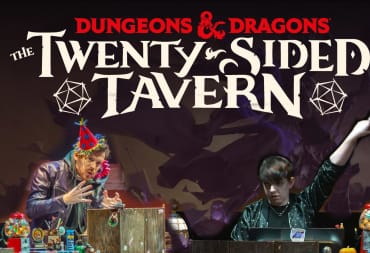The wastelands of the post-apocalyptic universe of Fallout are an unforgiving place. We expect hardship and despair wherever we go, along with a sense of danger, excitement, and a hint of radiation mixed in for good measure. The entire Fallout universe is a character onto itself, molded by three different studios fitting into a quasi-retro-filled sci-fi aesthetic circa 1959. It has charm and a mean streak all at once, a world showing the cynical response to human error in its ultimate form: our own greed and desire lead to our undoing.
Many fans of the Fallout series have a great reverence for this setting, making it one of the few games to really showcase atmosphere as a strength of its world design, and use that atmosphere to its advantage, but within the Fallout universe is something that is often overlooked: the people who live in it. It is these men, women, ghouls, and mutants who make up the backbone of the Fallout universe, but they are often overshadowed by the world they inhabit.
It is not due to mediocre writing or characterization in most cases, but rather their place in the grand scheme of things is one of little importance. The characters that inhabit the Fallout games are colorful and dynamic but are also products of their design - over the top and bombastic in some cases, or an in-joke in others.
Of course, there are some exceptions to this rule. The Fallout series is no stranger to colorful or dynamic characters - the mutant-turned-tree Harold, the ambitious Master, or even Marcus the friendly and pragmatic super mutant. One character, however, stands out further because he can showcase the harsh realities of the Fallout world while simultaneously providing an excellent character arc: Arcade Gannon from Fallout: New Vegas.
Arcade Gannon was originally going to be a companion character in the Fallout game codenamed Van Buren. Van Buren would have been the third game in the Fallout series by Black Isle and Interplay and originally was planned for a release in the early 2000s before being canceled in 2003. The reason for the cancellation is still disputed today, but one aspect is certain: Bethesda bought the rights to Fallout from Interplay in 2007 for $5.75 million, leaving Black Isle Studios with a nearly completed game (most reports point to the game's new engine being about 90% complete.)
Despite this loss, many aspects found in Van Buren would be revisited in future Fallout games. Van Buren, for example, would have included base building and a complex crafting system, a mode implemented into Fallout 4. Several characters and concepts from Van Buren, including Arcade Gannon, were also lifted from the game and migrated into Fallout: New Vegas, which was developed by many former Black Isle employees including original Van Buren project lead J.E Sawyer.
While it is not fully known the extent of rewrites Arcade’s character had since he was rescued from Van Buren, in New Vegas he is a researcher and member of the Followers of the Apocalypse, a group of doctors and scientists that offer first aid and care to those who receive none of it normally. Arcade makes his living doing research and reading books on Latin.
He has a self-deprecating sense of humor and seems to have little interest in any men whom he dates, commenting that “lovers make poor confidants.” He respects intelligence and doing the right thing, and loathes people like Caesar, the vicious leader of Caesar's Legion, a group of militaristic slavers looking to instill order into the Mojave wasteland through fear and control.
See, Arcade Gannon is an idealist, the kind of man who has convictions and motivations based on his own point of view. He believes he can do some good in a world that is anything but, and is stubbornly adamant of his convictions, believing that what he does will work towards a more helpful world. It is the type of conviction that allows Arcade to become absorbed in his research for the Followers of the Apocalypse.
Still, Arcade is also a man with his problems, mainly due to his turbulent past. Arcade’s father was a member of the Enclave, which in the Fallout world included the remnants of the Old World U.S. government, top corporate executives, and military personnel. The Enclave is also notoriously ruthless, killing those who disagree with their jingoistic super-patriotism and looking to purge the U.S. of mutants, ghouls, and other undesirables to return to the state of purity before the great war.
This type of imagery is purposely fascist. The Enclave is eerily similar to the Nazis in that regard, using propaganda and patriotism to rally folks to their cause. It is the pure antithesis of American liberty - to control the population and weed out undesirables through excessive force.
The Enclave were particularly effective villains in Fallout 2 and a fair antagonist in Fallout 3 as they showcase the United States at its worst, a stark juxtaposition of what they could have been pre-war. So considering the eventual defeat of the Enclave in both Fallout 2 and 3, the remnants of the faction are hunted down for their crimes by the now dominant faction in the western wastelands, the New California Republic.
Arcade himself was never a part of the Enclave, but his deceased father and surrogate family were, leading him to be guilty by association. In a rather macabre twist, the fate of the Enclave becomes once again similar to the Nazi witch-hunts during the 20th century - tracking down the remnants of an old, fascist regime for war crimes and subjugating them to punishment for past actions. Unlike the judicial process we have today, the wastelands are more unforgiving; even association leads to persecution, a fact that Arcade is mindful of as he keeps this aspect of his past under wraps because of the NCR.
Despite the negative outlook on the Enclave by the wasteland, Arcade deeply cares for his “family” and constantly strives to live up to the image of his father that he remembers. But because of what the Enclave has done in the past, it is a struggle for Arcade to hide his identity from those around him. Simply doing the right thing makes him feel accomplished, but even then it makes for more intimate or long-lasting relationships difficult at best, and Arcade himself sardonic at worst in regards to what good he is actually doing.
This is a fairly classic example seen in psychology, the crisis of identity. Coined by psychologist Erik Erikson, an identity crisis typically occurs when a person never achieves their ego during adolescence. In other words, teenagers can form their self-image as they grow and become confident in their abilities. Those who fail to do so will eventually have a crisis of identity as they mature in life they must overcome to continue development. This crisis would have individuals struggle to find themselves—who they are, what they wish to do, where they want to go, and so forth.
This idea of an identity crisis is a part of Erikson’s stages of psychosocial crisis, which refers to the belief that an individual must overcome a crisis to grow basic virtues and become a well-rounded individual. The stage in question for Arcade Gannon is the fidelity stage, where it is essentially a question of identity vs. role confusion that typically happens during adolescence.
Those who fail to find themselves would essentially be stuck in this stage of Fidelity, according to Erikson. In the case of Arcade, as a teenager, he was forced to move around with his surrogate family, the Enclave Remnants, due to their outlaw status. Arcade only found solace with his family, his studies in Latin, and other intellectual pursuits. Typical introverted nerd to a core, in that regard.
This makes Arcade Gannon a textbook case of Erikson’s proposed identity crisis. Because of the stress of his current situation, he failed to achieve a stage of fidelity naturally because of what he knew, versus what was expected of him.
Arcade was expected to take up his father’s mantle in some ways, he was expected to continue his legacy in some form with the remnants of the Enclave, but because of what the Enclave has done in the past, and what they represent to the people of the Mojave wasteland, it would be against what Arcade believes - his idealism on what would make the wasteland a better place. Hence, his crisis of identity is being caught in the two world views, the view of the Enclave, versus his own idealistic view, creating a crisis between what is right and what is expected of him.
The more interesting aspect of Arcade’s story, though, is how he attempts to resolve his crisis of identity, although in some respects, he never does. His quest in New Vegas, For Auld Lang Syne. The quest has you locate the surviving members of the Enclave remnants, Arcade’s surrogate family, for one more battle, actively getting involved in the political machinations of the Mojave wasteland one last time. It is Arcade’s idea to have the remnants help in protecting or capturing the Hoover Dam, the one piece of territory every single faction in New Vegas is vying for.
For Arcade Gannon, it is a chance to move on from his past, to bring honor to his father’s name, and to resolve his crisis of identity. As you go about recruiting the former Enclave members, you see Arcade begin to peel away his shyness, reveal intimate moments from his past, and share them with the player character. It is a moment where Arcade shows trust and understanding, one where he grows as a person because he is resolving his issues of identity.
We even see at the climax of the questline, Arcade can either don his father’s power armor, ready for a battle that he would believe in, depending on the player's choices. Or, he would give the armor to the player, as a sign of “being his own man” and moving on with his convictions. It is a kind of vindication that shows how Arcade is no longer shackled by his past. He has found a way to redeem the Enclave, albeit for a moment, and has made a pure choice for himself based upon his own convictions, regardless of what is expected of him.
Yet even with his crisis resolved, Arcade still struggles with his identity. The reason for that is simple: in the world of Fallout, idealism will end in cynical failure. His idealism is the one aspect of his personality that holds him back constantly; it is, after all, the source of his crisis of identity. Idealism leads Arcade to adhere to his own code of what he believes in and formulate conclusions as to what he thinks he wants.
See, Arcade knows what he doesn’t like, but he doesn’t know what he will like either. Even the Followers of the Apocalypse, the faction he decided to join, leaves him empty and unfulfilled because his idealistic nature clashes with the harsh reality of the world around him. The endings found in Fallout: New Vegas are quite brilliant in that regard, as they show off every nuance possible in regard to the choices you make as a player. These choices have major consequences, even for your followers, but Arcade Gannon, is rarely, if ever, satisfied with a positive ending.
J.E Sawyer, the project lead on Fallout: New Vegas summed up this notion of idealism rather succinctly in regards to why, for Arcade, idealism is a curse:
Arcade’s endings are intended to reflect that no one is damaged more by reality than the idealist. He does his best to be practical and rational, but there is a strong idealist streak in him/the Followers in general. In some of Arcade’s “best” endings (meaning, the circumstances he thought he wanted), he is still somewhat disappointed by how things turned out. In his “worst” endings, he can wind up bitterly disillusioned, brutally murdered, crucified, casually executed and discarded in a ditch, or even defiantly suicidal.
Arguably the worst ending is the one in which Arcade is given to Caesar as an enslaved doctor. The existence is so unbearable to him that he does what the historical Cato the Younger did at Utica: rather than give Caesar satisfaction, he disembowels himself. Like Cato, Arcade cannot live in a world where everything he tried to resist has come to pass.
It is appropriate in many ways why Arcade tends to get a raw deal in the game's epilogue. Despite his ideas and convictions, the world around him still wins, the cynical, ruthless aggressors out to survive the landscape around them. See, despite resolving his issues of identity, Arcade’s “best” endings have him working as a small-town doctor, and a teacher, helping the Mojave wasteland recover independently, and most of these see Arcade as bitter and broken because the world effectively stays the same.
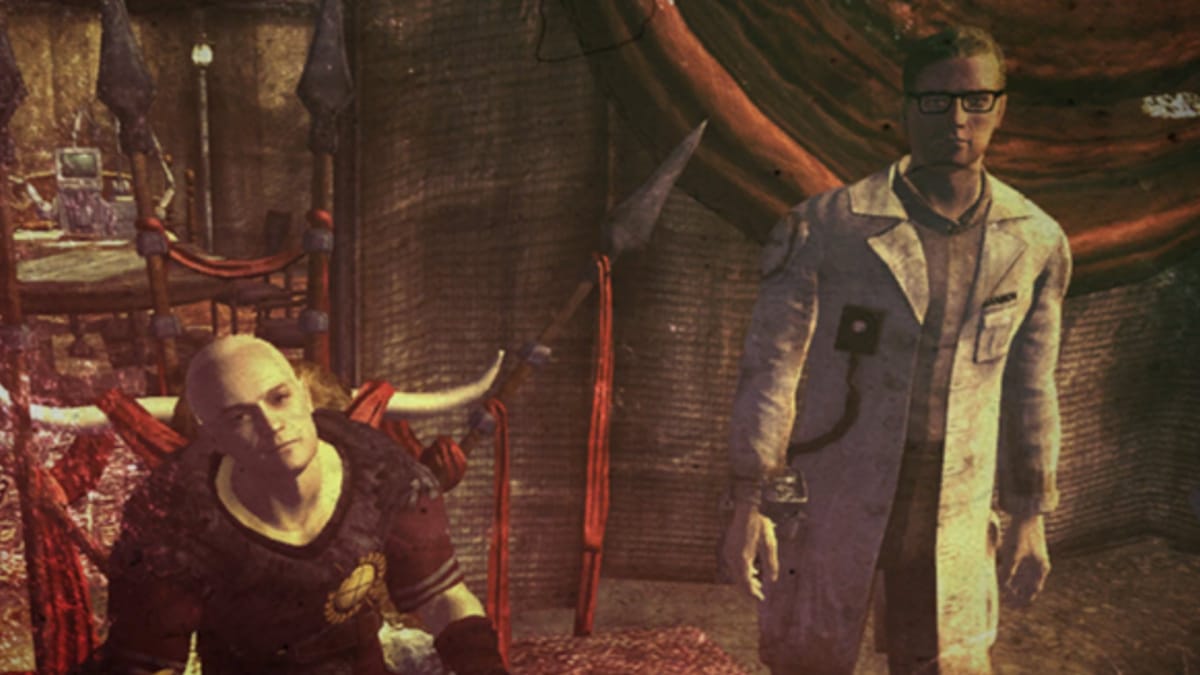
Most of those endings come to pass when resolving his quest and his issues of identity in a positive light, and even then they are never truly satisfying for him because they clash with his ideals. Arcade Gannon is symbolic of not just the false hopes of the idealist, but of the false hope of the world fully changing after delving into chaos. Lesser games and storytelling would have Arcade overcome such adversity, perhaps redeeming the Enclave fully for past transgressions. Yet, even helping out the NCR, the “good” faction in New Vegas, leads to Arcade's imprisonment or pursuit by bounty hunters because of his past.
It is frankly appropriate in that way. Fallout: New Vegas is one of the few games I know that has a fully bittersweet ending, regardless of what you do. Good and evil become irrelevant to the bigger picture, and things will simply change over time anyway. The Fallout universe is broken, destroyed, and has made people disillusioned as they cling to any semblance of order or routine possible; Arcade Gannon showcases just one aspect of this, but every ending in New Vegas is somewhat disappointing to those involved in it, from companions to factions to even the fate of New Vegas itself.
Every ending, no matter the good or the bad in terms of its consequences, has aspects to it that represent the reality of the Fallout world - as the tagline succinctly says, “war never changes.”
Within this harsh reality though, Arcade Gannon shines as the textbook antithesis of why it never changes. His idealism holds him back, despite his good intentions and likable personality. His past and present beliefs cause the identity crisis that he struggles to resolve, and in most respects, despite a moment of hopeful catharsis near the game's climax, he still becomes disillusioned or destroyed by the world around him, the very world he hoped to make a better place. The ultimate truth is Arcade Gannon can never be fully happy; the world of Fallout simply won’t let him.
It is a reality that the world of Fallout conveys in spades with its landscape. The destroyed remnants of the pre-war United States, the very bones of civilization that further generations build upon, is a pointed reminder of what has happened before it. If nothing else, Arcade is one of the few complex characters in the Fallout universe to fully showcase just how bleak and desolate Fallout can be, a testament to his multi-layered characterization.
This post was originally published in 2015 as a part of our Character Select series. It's been republished to have better formatting.
Have a tip, or want to point out something we missed? Leave a Comment or e-mail us at tips@techraptor.net
